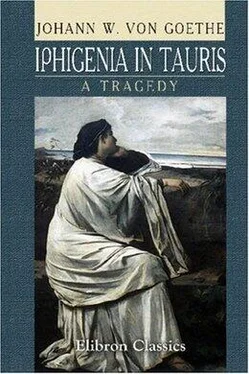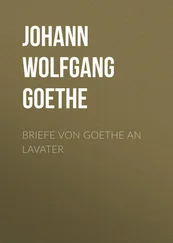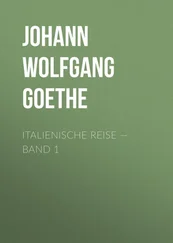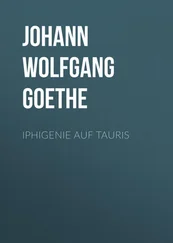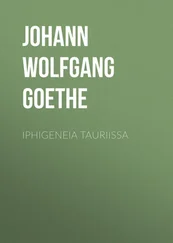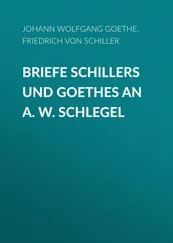SCENE III.
ORESTES. IPHIGENIA. PYLADES.
ORESTES.
How! are ye come already? Sister, welcome.
Electra still is missing: some kind god
With gentle arrow send her quickly hither.
Thee, my poor friend, I must compassionate!
Come with me, come to Pluto's gloomy throne.
There to salute our hosts like stranger guests.
IPHIGENIA.
Celestial pair, who from the realms above
By night and day shed down the beauteous light
To cheer mankind, but who may not illume
Departed spirits, save a mortal pair!
A brother's and a sister's anguish pity!
For thou, Diana, lov'st thy gentle brother
Beyond what earth and heaven can offer thee
And dost, with quiet yearning, ever turn
Thy virgin face to his eternal light.
Let not my only brother, found so late,
Rave in the darkness of insanity!
And is thy will, when thou didst here conceal me,
At length fulfill'd,—would'st thou to me through him,
To him through me, thy gracious aid extend,—
Oh, free him from the fetters of this curse,
Lest vainly pass the precious hours of safety.
PYLADES.
Dost thou not know us, and this sacred grove,
And this blest light, which shines not on the dead?
Dost thou not feel thy sister and thy friend,
Who hold thee living in their firm embrace?
Grasp us! we are not shadows. Mark my words!
Collect thyself,—each moment now is precious,
And our return hangs on a slender thread,
Which, as it seems, some gracious fate doth spin.
ORESTES
to
IPHIGENIA.
My sister, let me for the first time taste,
With open heart, pure joy within thine arms!
Ye gods, who charge the heavy clouds with dread,
And sternly gracious send the long–sought rain
With thunder and the rush of mighty winds,
A horrid deluge on the trembling earth;
Yet dissipate at length man's dread suspense,
Exchanging timid wonder's anxious gaze
For grateful looks and joyous songs of praise,
When in each sparkling drop which gems the leaves,
Apollo, thousand–fold, reflects his beam,
And Iris colours with a magic hand
The dusky texture of the parting clouds;
Oh, let me also in my sister's arms,
And on the bosom of my friend, enjoy
With grateful thanks the bliss ye now bestow
My heart assures me that your curses cease.
The dread Eumenides at length retire,
The brazen gates of Tartarus I hear
Behind them closing with a thund'ring clang.
A quick'ning odour from the earth ascends,
Inviting me to chase, upon its plains,
The joys of life and deeds of high emprise.
PYLADES.
Lose not the moments which are limited!
The favouring gale, which swells our parting sail,
Must to Olympus waft our perfect joy.
Quick counsel and resolve the time demands.
When the Powers on high decree
For a feeble child of earth
Dire perplexity and woe,
And his spirit doom to pass
With tumult wild from joy to grief,
And back again from grief to joy,
In fearful alternation;
They in mercy then provide,
In the precincts of his home,
Or upon the distant shore,
That to him may never fail
Ready help in hours of need,
A tranquil, faithful friend.
Oh, bless, ye heavenly powers, our Pylades,
And every project that his mind may form!
In combat his the vigorous arm of youth,
And in the counsel his the eye of age.
His soul is tranquil; in his inner mind
He guards a sacred, undisturb'd repose,
And from its silent depths a rich supply
Of aid and counsel draws for the distress'd.
He tore me from my brother, upon whom,
With fond amaze, I gaz'd and gaz'd again;
I could not realize my happiness,
Nor loose him from my arms, and heeded not
The danger's near approach that threatens us.
To execute their project of escape,
They hasten to the sea, where in a bay
Their comrades in the vessel lie conceal'd
And wait a signal. Me they have supplied
With artful answers, should the monarch send
To urge the sacrifice. Alas! I see
I must consent to follow like a child.
I have not learn'd deception, nor the art
To gain with crafty wiles my purposes.
Detested falsehood! it doth not relieve
The breast like words of truth: it comforts not,
But is a torment in the forger's heart,
And, like an arrow which a god directs,
Flies back and wounds the archer. Through my heart
One fear doth chase another; perhaps with rage,
Again on the unconsecrated shore,
The Furies' grisly band my brother seize.
Perchance they are surpris'd? Methinks I hear
The tread of armed men. A messenger
Is coming from the king, with hasty steps.
How throbs my heart, how troubl'd is my soul
Now that I see the countenance of one,
Whom with a word untrue I must encounter!
SCENE II.
IPHIGENIA. ARKAS.
ARKAS.
Priestess, with speed conclude the sacrifice,
Impatiently the king and people wait.
IPHIGENIA.
I had perform'd my duty and thy will,
Had not an unforeseen impediment
The execution of my purpose thwarted.
ARKAS.
What is it that obstructs the king's commands?
IPHIGENIA.
Chance, which from mortals will not brook control.
ARKAS.
Possess me with the reason, that with speed
I may inform the king, who hath decreed
The death of both.
IPHIGENIA.
The gods have not decreed it.
The elder of these men doth bear the guilt
Of kindred murder; on his steps attend
The dread Eumenides. They seiz'd their prey
Within the inner fane, polluting thus
The holy sanctuary. I hasten now,
Together with my virgin–train, to bathe
Diana's image in the sea, and there
With solemn rites its purity restore.
Let none presume our silent march to follow!
ARKAS.
This hindrance to the monarch I'll announce:
Do not commence the rite till he permit.
IPHIGENIA.
The priestess interferes alone in this.
ARKAS.
An incident so strange the king should know.
IPHIGENIA.
Here, nor his counsel nor command avails.
ARKAS.
Oft are the great consulted out of form.
IPHIGENIA.
Do not insist on what I must refuse.
ARKAS.
A needful and a just demand refuse not.
IPHIGENIA.
I yield, if thou delay not.
ARKAS.
I with speed
Will bear these tidings to the camp, and soon
Acquaint thee, priestess, with the king's reply.
There is a message I would gladly bear him:
'Twould quickly banish all perplexity:
Thou didst not heed thy faithful friend's advice.
IPHIGENIA.
I willingly have done whate'er I could.
ARKAS.
E'en now 'tis not too late to change thy mind.
IPHIGENIA.
To do so is, alas, beyond our power.
ARKAS.
What thou wouldst shun, thou deem'st impossible.
IPHIGENIA.
Thy wish doth make thee deem it possible.
ARKAS.
Wilt thou so calmly venture everything?
IPHIGENIA.
My fate I have committed to the gods.
Читать дальше
